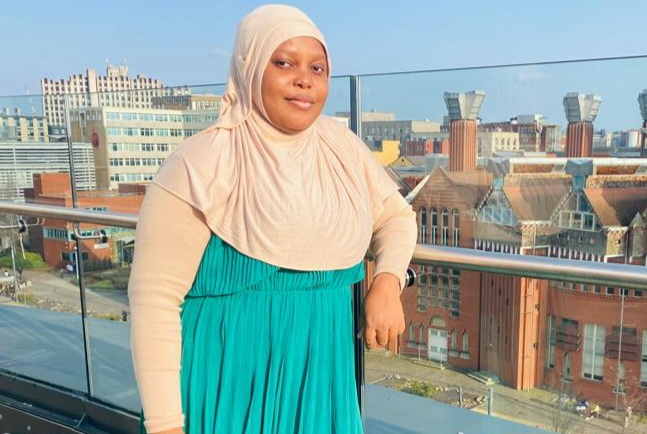 In an era where environmental sustainability is at the forefront of global development, Hawau Olajumoke Shuaib, a construction expert and researcher, has called for more robust adoption of green building practices in Nigeria’s construction industry. In her recent study, “An Appraisal of Green Building Practices Amongst Construction Practitioners,” Hawau underscores the need for environmentally sound construction techniques to minimize the adverse effects of buildings on the environment and human health.
In an era where environmental sustainability is at the forefront of global development, Hawau Olajumoke Shuaib, a construction expert and researcher, has called for more robust adoption of green building practices in Nigeria’s construction industry. In her recent study, “An Appraisal of Green Building Practices Amongst Construction Practitioners,” Hawau underscores the need for environmentally sound construction techniques to minimize the adverse effects of buildings on the environment and human health.
“Green building is more than a trend; it’s a necessity for sustainable development. Unfortunately, while awareness exists, actual adoption remains moderate,” Hawau said, summarizing the findings of her study conducted at the Federal University of Technology, Minna, Niger State.
The study, which surveyed 50 professionals in Nigeria’s construction industry, including architects, engineers, builders, and quantity surveyors, revealed a paradox: although practitioners are knowledgeable about green building techniques, the level of implementation remains limited. This reflects what Hawau termed a “gap between awareness and action.”
She explained that green building integrates diverse strategies aimed at reducing the environmental harm caused by construction. “From energy efficiency and water conservation to waste reduction and the use of eco-friendly materials, green building practices are designed to protect both people and the planet,” Hawau noted.
The findings suggest that factors such as cost constraints, lack of technical expertise, and limited policy enforcement hinder the widespread adoption of green practices. “While many professionals are interested in green construction, the financial burden and lack of incentives often discourage full implementation,” Hawau stated.
Despite these challenges, Hawau observed that the global shift toward sustainability offers Nigeria an opportunity to embrace green building at a larger scale. “The construction industry is one of the largest contributors to greenhouse gas emissions. Adopting sustainable practices is not just a responsibility but an investment in our future,” she emphasized.
The study also highlighted the importance of collaboration among industry stakeholders. Architects and engineers, for example, play a pivotal role in integrating sustainable designs, while builders and quantity surveyors ensure efficient execution. “Green building requires a multi-disciplinary approach. Each professional has a critical role to play,” Hawau remarked.
She urged policymakers to create a more enabling environment for green construction through regulations, financial incentives, and awareness campaigns. “Governments need to prioritize sustainability by incentivizing green projects and enforcing compliance with environmental standards,” she said.
Hawau’s study aligns with global findings that emphasize the importance of education and training in advancing sustainable practices. She suggested targeted capacity-building programs for construction professionals to bridge knowledge gaps and enhance practical implementation. “Knowledge is power, but without proper training, awareness alone cannot drive change,” she stated.
Additionally, the research emphasized the economic benefits of green construction. According to Hawau, energy-efficient buildings may have higher initial costs, but they result in significant long-term savings. “Green buildings reduce operational costs while enhancing indoor environmental quality, making them a win-win for both investors and occupants,” she said.
Hawau also highlighted the need for local adaptation of green practices. She explained that strategies successful in other countries must be tailored to Nigeria’s unique environmental, economic, and social context. “Sustainability is not one-size-fits-all. We need solutions that work for our climate, culture, and economy,” she added.
The study concluded by calling for collective action among professionals, governments, and private stakeholders to drive the green building movement in Nigeria. “Sustainability is a shared responsibility. Everyone in the built environment must contribute to creating healthier, eco-friendly spaces,” Hawau stated.
As global awareness of climate change grows, Hawau’s research serves as a timely reminder of the urgency to transition to sustainable construction practices. “The time for green building is now. If we delay, we risk compounding the environmental crises we already face,” she warned.
With her extensive background in construction project management and sustainability, Hawau continues to advocate for transformative change in Nigeria’s construction industry. Her work not only identifies the challenges but also offers a roadmap for achieving a greener, more sustainable future.






